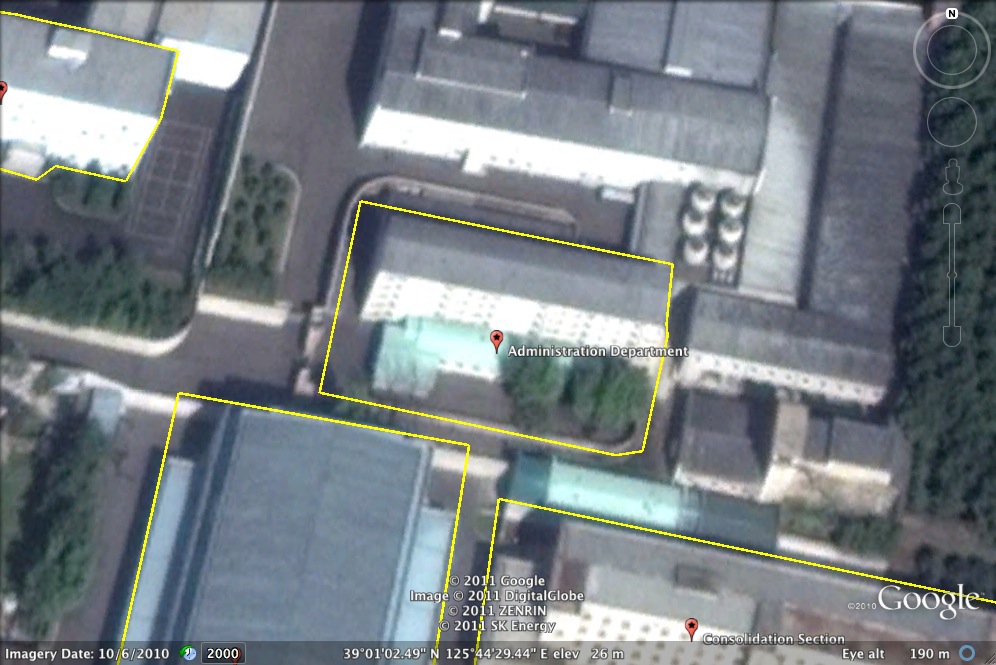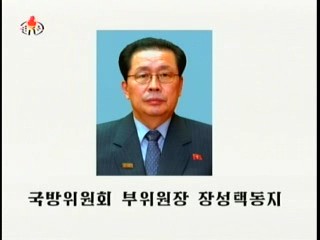Administration Department

Administration Department office building in the #1 Party Office Building Complex in central Pyongyang (Photo: Google image)
KWP Administration Department
The KWP Central Committee Administration Department is the Korean Workers’ Party’s (KWP) executive institution for managing personnel appointments (human resources), paperwork traffic between the KWP and National Defense Commission, and capital city planning and development. It is also responsible for the daily operational management of the State Security Department, Ministry of People’s (Public) Security, the Military Security Command, the DPRK Supreme (Central) Court and Supreme Public Prosecutor’s Office.
The Administration Department controls a number of SOE’s (taking the form of foreign trading corporations) and construction brigades. It also controls the CC KWP Workers’ Organizations’ Department, which assert a level of social control and surveillance on DPRK citizens, regardless of party affiliation.
While the Administration Department assumes a degree of control over the bureaucratic and reporting channels both in the KWP and the internal security apparatus, its actual power is not known. Human resources managementmost likely remains with the CC KWP Organization Guidance Department. It is likely that the Administration Department has the authority to veto OGD personnel appointments, or exercises a bureaucratic preemptive strike.
Institutional Ties
The Administration Department is responsible for the daily management of the State Security Department. It also has personnel oversight, and management of the Ministry of People’s (Public) Security/the Korean People’s Interior Forces, the Military Security Command and the Supreme Public Prosecutor’s Office and the DPRK Supreme (Central) Court. These police and judicial agencies prepare daily reports (gathered from subordinate and provincial offices) which are submitted to the Administration Department. Because of its central control of the country’s domestic police and intelligence apparatus, the Administration Department can mobilize and relocate segments of the population in a contingency, or for the purposes of political security.
Through its control of the Workers’ Organizations (i.e. Kim Il Sung Youth League; Union of Agricultural Workers; Korean Democratic Women’s Union), the Administration Department generates a channel of domestic intelligence reporting (population surveillance and control), that seemingly operates outside of the internal security apparatus. It also mobilizes these organizations and their membership for public (rallies, loyalty meetings) and media appearances. The Administration Department also mobilizes the Workers’ Organizations as labor on infrastructure and housing construction.
The Administration Department has broad investigative and economic inspection (auditing) powers. In order to fulfill certain missions, it aggressively recruits among the internal security agencies for members of its inspection committees. It also has a broad license to summon whatever material and human resources it deems necessary.
The Administration Department also controls and monitors all civilian telecommunications in the DPRK. The Ministry of People’s (Public) Security controls the country’s telephone lines, in coordination with the Guard Command, Ministry of Post and Telecommunications and the SOE, Korean Post and Telecom. The State Security Department monitors all cellular telephone usage, and is the chief regulatory agency of the country’s two consumer mobile telephone service providers.
Command and reportage
Jang Song Thaek is the current Department Director of the CC KWP Administration Department. He is also concurrently Vice Chairman of the National Defense Commission, director of the State Development Bank, director of the Taepung International Investment Group and director of the Taesong International Group. He was appointed to his current position in 2007, when the Administration Department was restored, after 17 years of bureaucratic mothballing. Jang reports directly to Kim Jong Il.
Since Jang’s promotion to NDC Vice Chairman in June 2010 and the subordination of the Ministry of People’s Security to the NDC (observed in April 2010), he now holds a government office through which he can formally issues orders and guidance to the SSD,MPS and MSC, as well as the Supreme Public Prosecutor’s Office and DPRK Supreme (Central) Court.
History and background
The Administration Department existed from the 1970s to 1990. In 1990 its responsibilities were migrated to the Organization Guidance Department and Personal Secretariat. It was restored in 2007.
